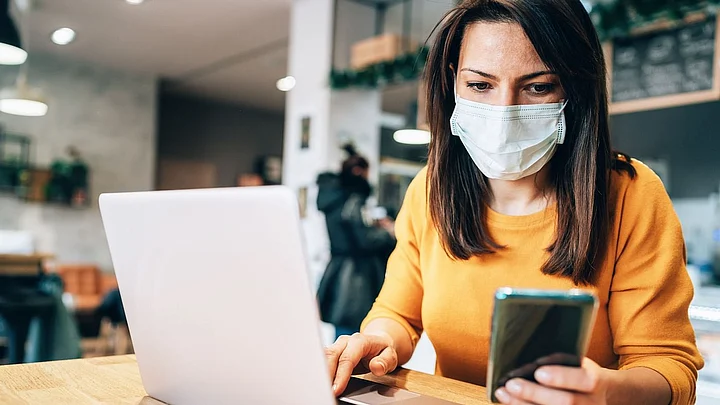The novel coronavirus can possibly remain 'extremely robust' on your phone screens, banknotes, glass and door handles for as long as 28 days at room temperature (20 degree celsius), according to a study published by scientists at the Australian Centre for Disease Preparedness. In comparison, the flu virus can remain robust for 17 days.
In a statement, the centre's deputy director said:
“Our results show that SARS-CoV-2 can remain infectious on surfaces for long periods of time, reinforcing the need for good practices such as regular hand washing and cleaning surfaces.”Debbie Eagles, the center’s deputy director
Coronavirus Survival Prolonged in Cooler Weather
A study published in Virology Journal stated that the survival rates of the virus plummeted to less than a day at 40 degrees Celsius on some surfaces. This strengthened evidence to the fact that coronavirus survival gets prolonged in cooler weather and also contributed substantially in predicting the pandemic’s spread, according to the scientists.
During the Australian research, it was found that coronavirus’ survival prolonged on nonporous or smooth surfaces, compared with porous complex surfaces, such as cotton.
It included drying the coronavirus in an artificial mucus on different surfaces, at concentrations similar to those reported in samples from infected patients. After that, the virus was re-isolated for over a month. Since direct sunlight could inactivate the virus, the study was conducted in a dark setting.
“While the precise role of surface transmission, the degree of surface contact and the amount of virus required for infection is yet to be determined, establishing how long this virus remains viable on surfaces is critical for developing risk mitigation strategies in high-contact areas.”Debbie Eagles, the center’s deputy director
The virus’ ability to sustain on surfaces is essentially concerning given that touchscreen devices such as mobile phones, bank ATMs, supermarket self-serve checkouts and airport check-in kiosks are high touch surfaces which may not be regularly cleaned, and therefore increase the chances of transmission of SARS-CoV-2, the researchers said in the paper.
The researches felt the longer survival time of SARS-CoV-2 than seasonal flu on banknotes is “of particular significance, considering the frequency of circulation and the potential for transfer of viable virus both between individuals and geographic locations.”
(The article was first published in FIT and has been republished with permission.)
